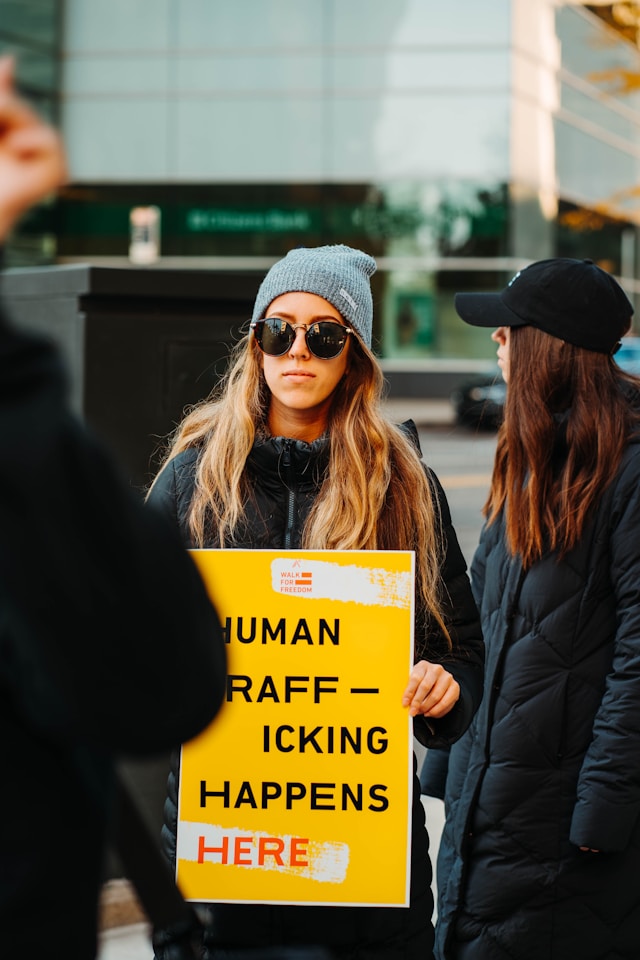Human trafficking remains one of the most heinous human rights violations of our time. Austria is no exception. The most recent trends and statistics show that, despite ongoing efforts at both national and European level, there continues to be an urgent need for action. The Situation Report released by Austria’s Federal Criminal Office in 2023 recorded 122 victims of human trafficking, 94 of whom were female, and a strikingly large number of whom were under-age. In total, 41 children and young people were affected. These figures show that in the field of human trafficking, a significant amount of change is still required. For that reason, the question remains: what are the future prospects for human trafficking in Austria, and what are the perspectives for real change?

GRETA Report
Although the current GRETA Report (short for “Group of Experts on Action against Trafficking in Human Beings”) from the Council of Europe highlights Austria’s commitment to fighting human trafficking, these measures are not enough. While victims in Austria with the right to stay are also entitled to work, they continue to face obstacles in accessing the job market. As well as this, out of the 178 cases examined, just 27 victims received compensation. Also, there is often still considerable work to be done when it comes to victim identification by authorities. Particularly concerning is the lack of sufficient resources for NGOs, which play a crucial role in caring for and accompanying victims.
Protection through structure: the role of NGOs
NGOs provide essential support in the Austrian system of protection for those affected by human trafficking. They offer psychosocial care, safe accommodation and help accessing education and work. These agencies’ work suffers from chronic underfunding, however, and a failure to be integrated with other institutions. The GRETA Report, therefore, demands that NGOs be more strongly integrated into official processes, and that their financing be secured. One possible way of doing this is to implement legally-grounded cooperation obligations between the state and civil society, accompanied by standardised guidelines for victim protection and care.
Reforming the EU Guideline as future perspective
The planned reform to the EU Human Trafficking Guideline is designed to help strengthen the rights of victims, pursue perpetrators more consistently, and improve cross-border collaboration. The core points of the reform include expanding support services irrespective of victims’ residence status, and criminal prosecution where the trafficking is also arranged online. Austria has a duty here to rapidly and quickly turn the new standards into national law, first and foremost to close existing loopholes and avoid new ones.
Global Chain
One example of cross-border collaboration in the struggle against human trafficking is the Global Chain project This police operation, carried out in June 2024, served to fight human trafficking. Coordinated by Austrian authorities, 40 countries participated in the campaign, in which 219 suspects were arrested worldwide and 1,374 potential victims were identified. Some 235 government employees took part in Austria alone, saving 21 victims and introducing a number of preliminary proceedings. The operation focussed on fighting sexual exploitation and organised begging. Global Chain shows just how important international networks, early warning systems and joint operational strategies can be in effectively fighting human trafficking. At the same time, the operation clearly showed that repression alone is not enough. This has to be combined with preventative measures and sustained victim protection in order to have an effect over the long term.

Integration as solution approach
Another good approach providing protection against human trafficking is integration. Access to the job market, education, psychosocial care and language courses are important prerequisites for ensuring that victims do not simply return to dependency once again, or not at all. Some NGOs, such as our own organisation, Hope for the Future, strive to achieve precisely that – enabling those affected to settle down again. Despite this, Austria can build upon a number of programmes here too, in order to create long-term perspectives. Decriminalisation of those affected in right of residence would be a core step in giving them a real chance.
Conclusion
Current figures and reports show that, despite existing measures and international cooperation, many loopholes continue to exist in the protection system. The lack of victim identification, insufficient compensation and lacking support for NGOs in particular highlight the need for reform. Initiatives such as the Global Chain police operation, planned reform to EU guidelines and commitment of organisations in civil society give hope. But repression alone is not enough. Preventative structures, lasting victim protection and real offers of integration are needed. Austria is responsible for transforming words into effective deeds – for a system that doesn’t just save people, but also heals and strengthens them.
Translated by Tim Lywood
#Menschenhandel #GRETABericht #Opferschutz #EURichtlinie #NGOs #GlobalChain #Integration #BekämpfungMenschenhandel #Menschenrechtsverletzungen #AgainstHumanTrafficking #GegenMenschenhandel #EndExploitation #EndTrafficking #HopeForTheFuture #Österreich
